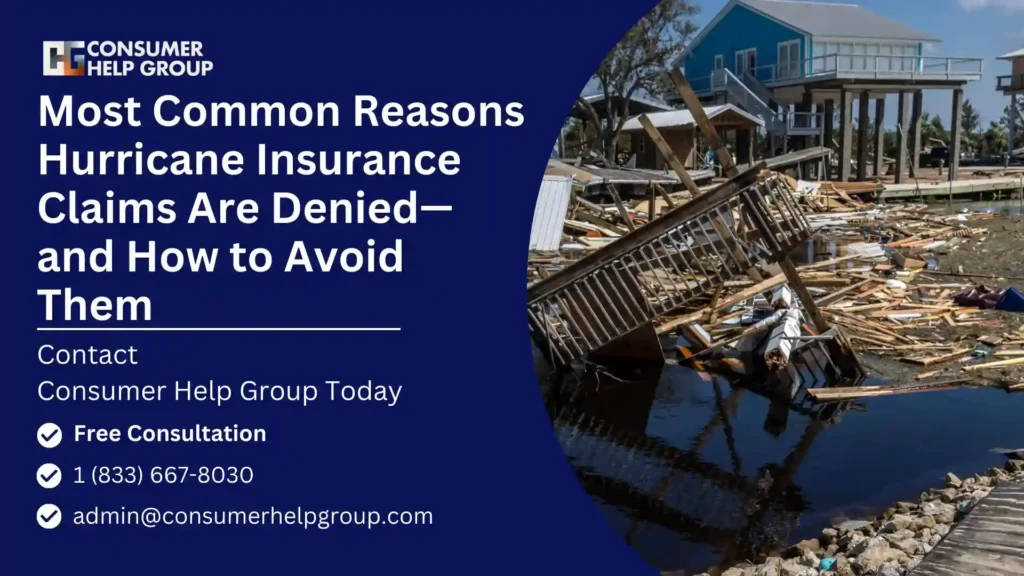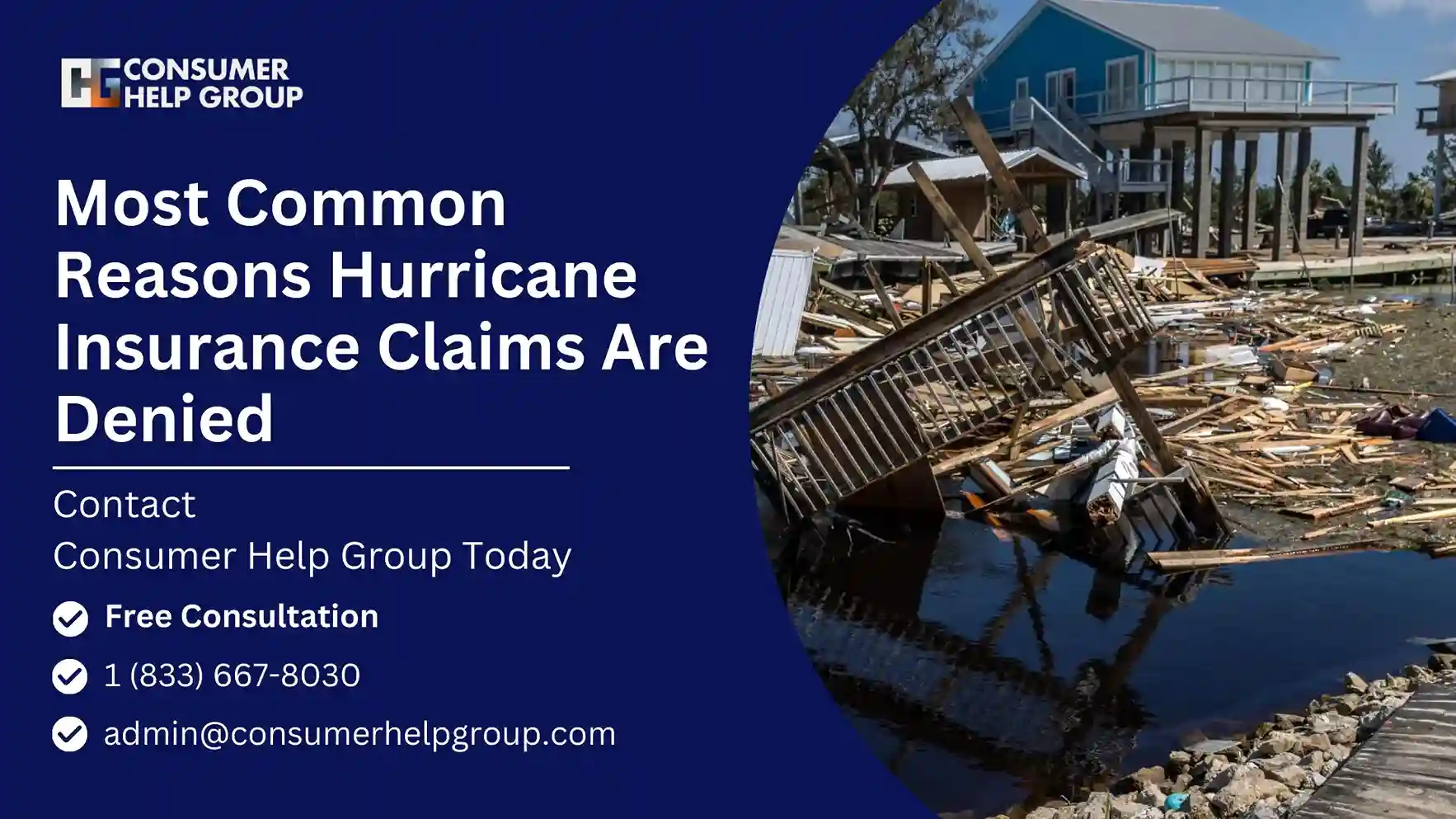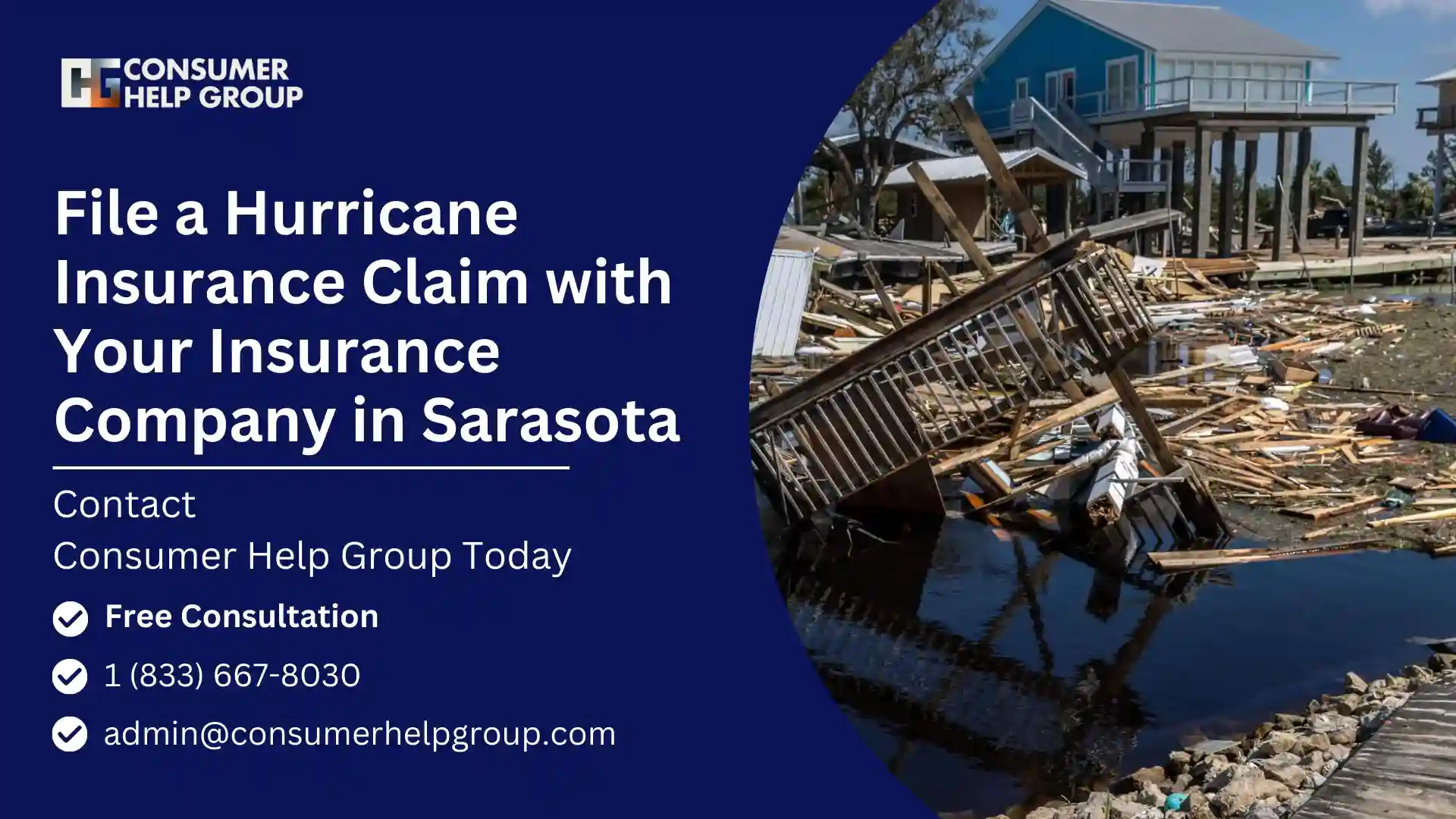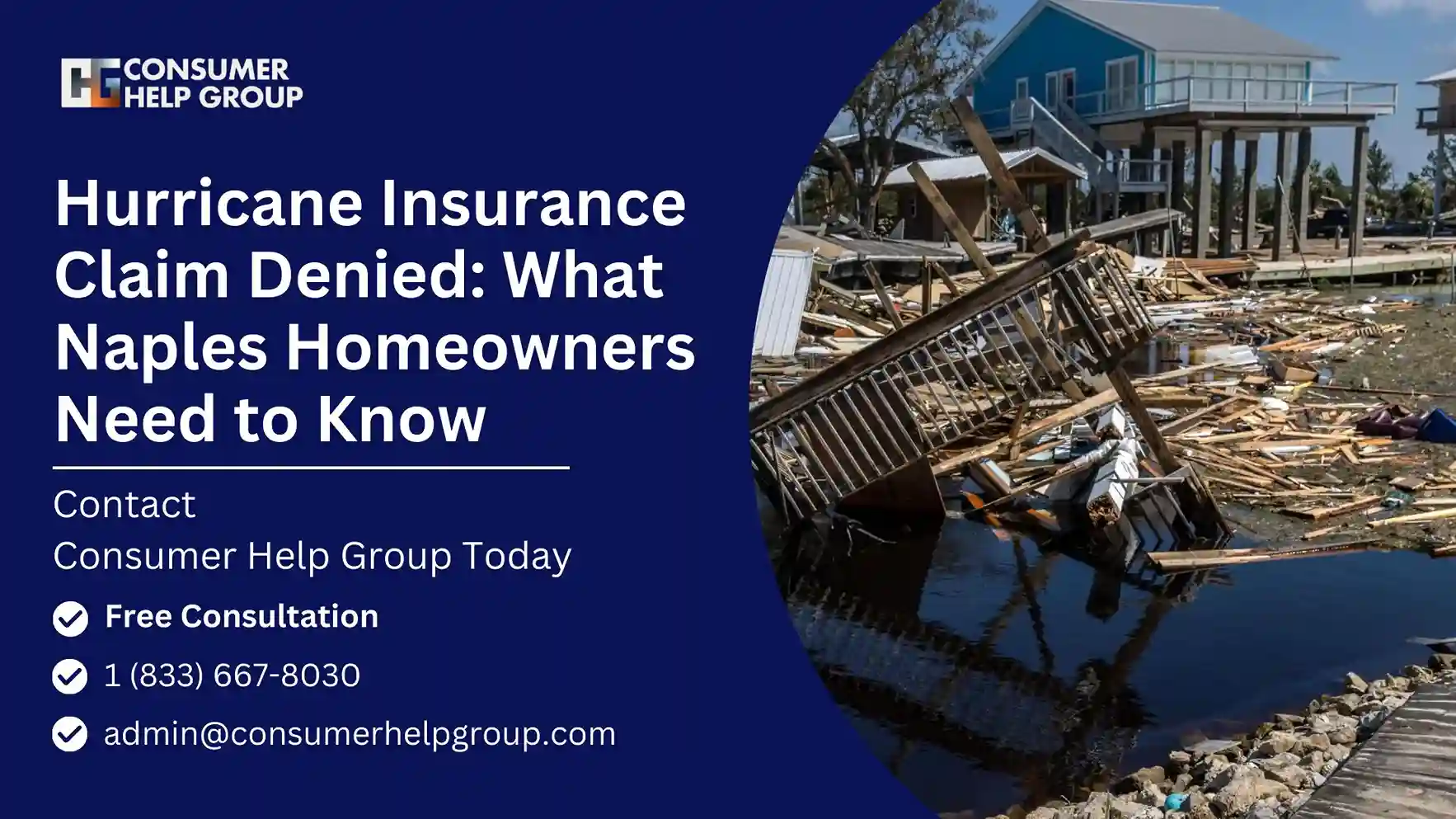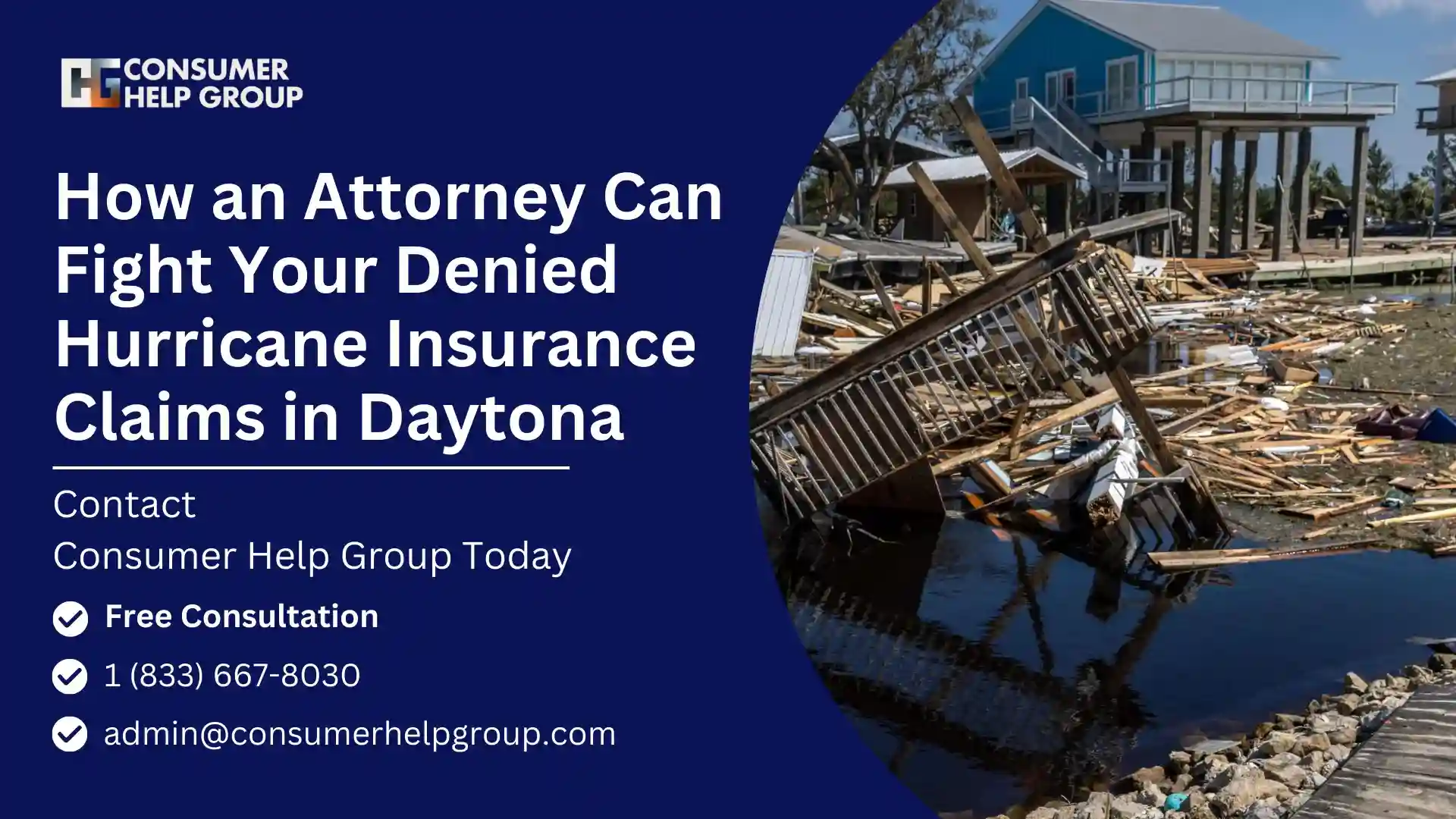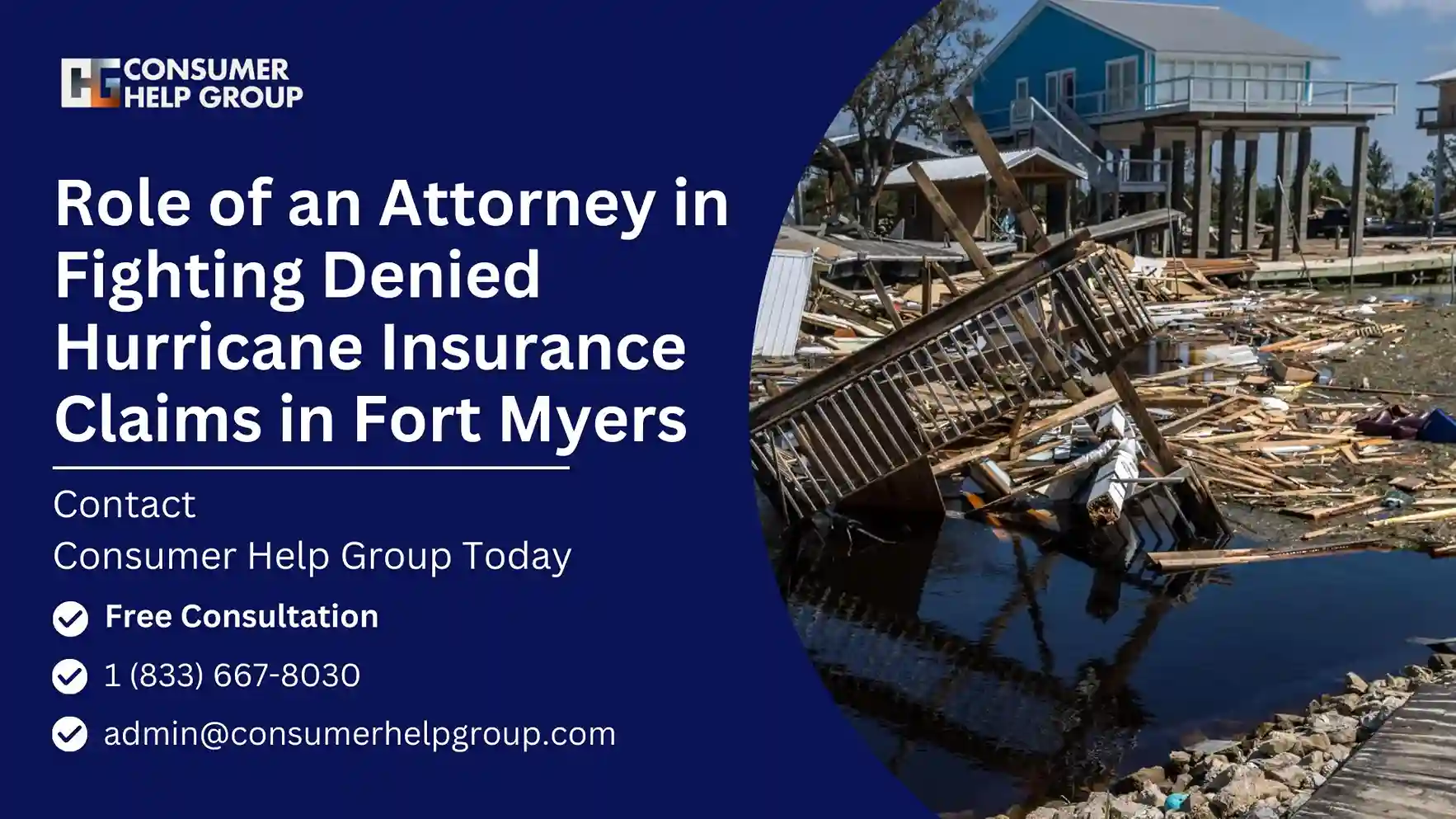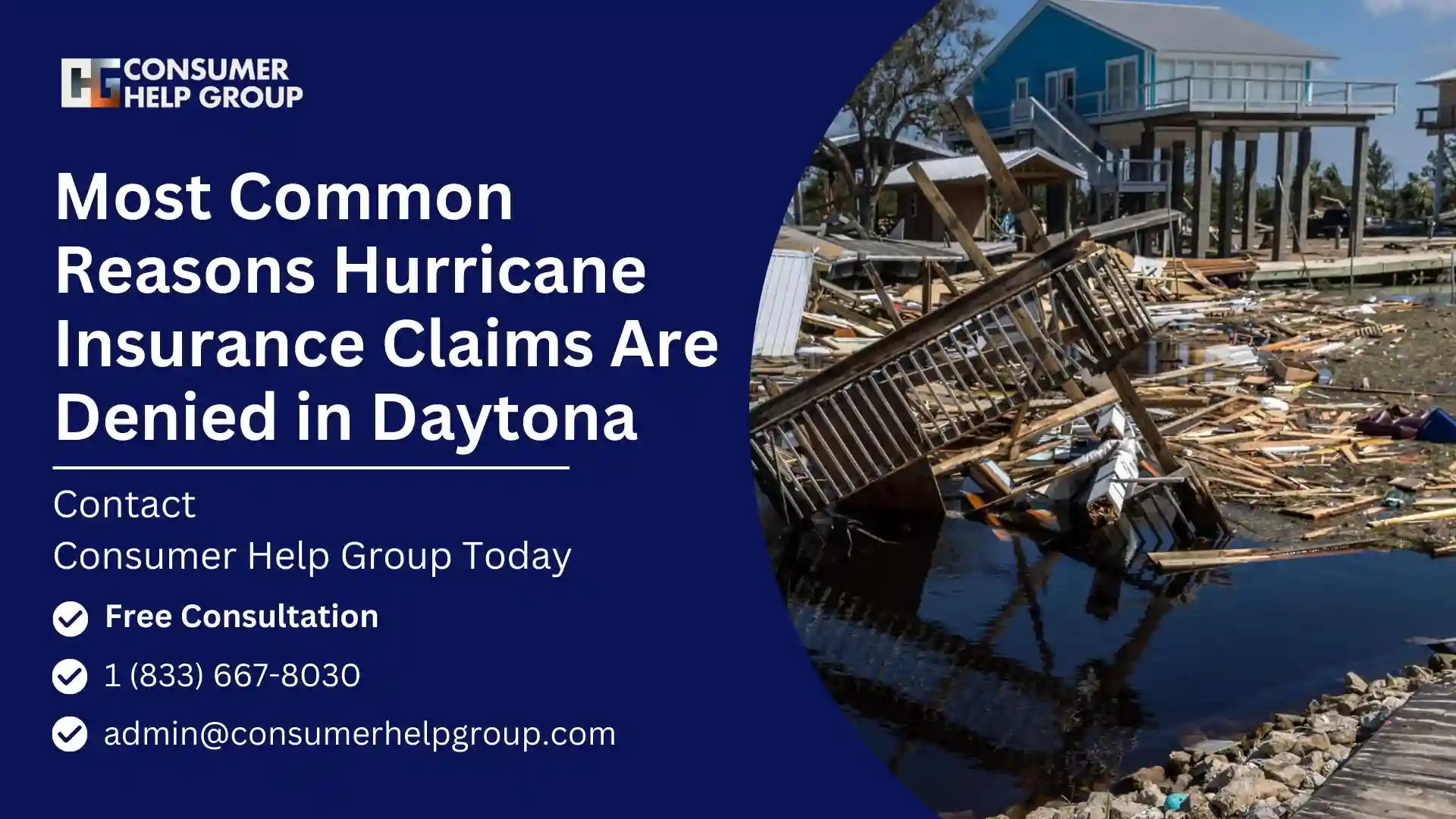Hurricanes are a sad reality of life in Sarasota, Florida. That is where the family turns to insurance when they can pick up the pieces after storm damage has occurred. Many people are often blindsided by a hurricane claim denial. If you are one of many, you aren’t alone. Understanding why claims get denied is the first step in avoiding those pitfalls and securing the compensation you deserve.
Consumer Help Group is a seasoned company that battles victims of disapproved claims with the assistance of professional attorneys. We will now outline the most common denial causes and how to prevent them practically.
Why Do Hurricane Insurance Claims Get Denied?
- Insufficient Coverage
More often than not, homeowners believe their policies will cover nearly any hurricane-related damage. However, standard insurance usually has damage exclusions-most often flooding or windstorms-except if you’ve purchased extra coverages.
- Lateness in Filing
After a hurricane, clients will always be expected to fill claims within particular periods. Not meeting the deadlines is one of the primary reasons why most claims are rejected.
- Pre-Existing Damage
Insurance companies will always turn down claims if they perceive that the damage took place before the hurricane. This usually occurs through inspection or previous repair evidence.
- Failure to Mitigate Damage
Homeowners are required to make reasonable efforts not to cause additional damage after a hurricane. If an insurance company determines that you didn’t act fast enough-for instance, letting broken windows become exposed can deny your claim for this reason.
- Poor Documentation
Most policyholders face struggles because they submit loose or unsworn evidence. Without adequate documentation of the damage, the insurance company will let you know that there isn’t enough evidence to work your case.
- Disputes Over Policies
Sometimes, the issue lies in differing interpretations of your policy. Insurance companies may argue that the type of damage you’re claiming isn’t covered or falls under exclusions in your contract.
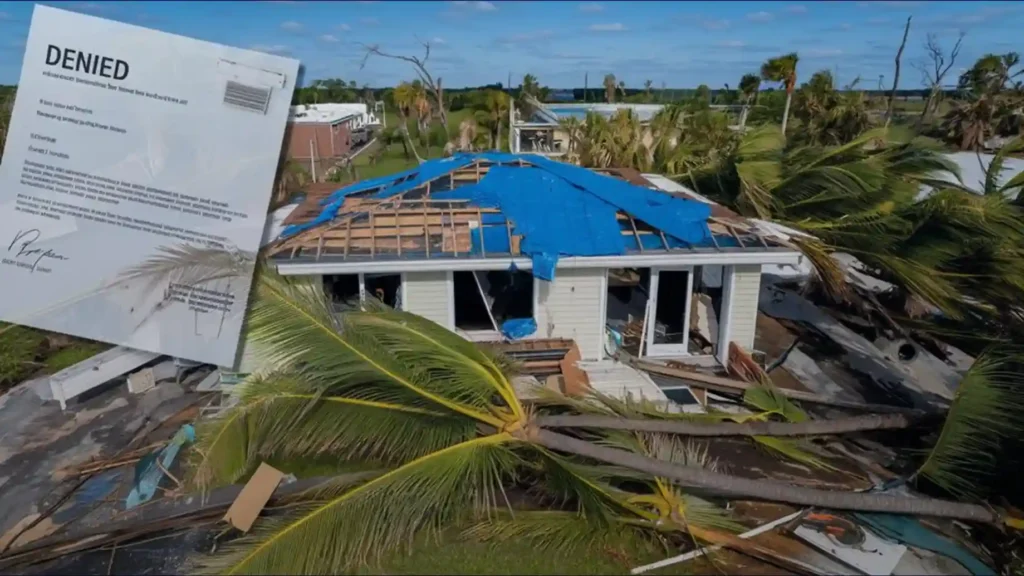
How to Avoid Hurricane Claim Denials
- Review Your Coverage
Before hurricane season, carefully review your insurance policy. Make sure it includes hurricane, windstorm, and flood coverage if applicable. If you’re unsure, consult your insurance agent or a professional to clarify what’s covered.
- Learn more about hurricane and flood insurance from the National Flood Insurance Program.
- File Your Claim Immediately
Don’t delay! File your claim as soon as it’s safe to assess the damage. Keep your insurer’s contact details handy, and follow their process closely to avoid missing deadlines. For Florida-specific deadlines and guidance, visit the Florida Division of Emergency Management.
- Document Your Home Before and After the Storm
- Home inspections should be done periodically and the state of your house recorded before the hurricane season.
- For documentation purposes, take photos and videos of all damages caused by the storm: from damaged roofs to waterlogged possessions. This will serve as proof that such damage occurred due to the hurricane and not because of other pre-existing issues.
- Some tips by the Insurance Information Institute on documentation of damages after a storm.
- Preventing Further Damage After a Storm
- Make temporary repairs, like tarping a leaky roof or boarding up broken windows, to avoid further damage.
- Save receipts for all of your expenses and attach them to your claim.
- Document In Detail
Prepare a complete list of what has been damaged and its estimated value. Include any purchase receipts when possible. The more detailed your documentation, the stronger your case will be.
- Seek Professional Assistance When Appropriate
Disputes over the wording of policy can be very complex. Don’t need to worry about dealing with it with a public adjuster or attorney who can specialize in insurance claims. Here at Consumer Help Group, we introduce you to attorneys who are experienced in handling insurers and disputing denials in your favor.
What to Do If the Insurer Denies Your Claim
If your claim is denied, well then, it’s not game over yet. The ways of handling denials above are legal means.
- Explain denial in full detail
- Collect supporting evidence
- Consult an attorney to appeal the denial and defend your rights
Seek professional legal advice on the Consumers Assistance Page of the Florida Department of Financial Services.
Need Help with a Denied Hurricane Claim?
Filing an insurance claim after a hurricane is overwhelming. If you are living in Sarasota and have a denied claim, don’t have to walk that path alone. Our partnering experienced attorneys are ready to fight for your compensation.
Contact the Consumer Help Group today to schedule your consultation. Together, we’ll put the insurance on your side when you most need it.
Stay safe and prepared, Sarasota!


